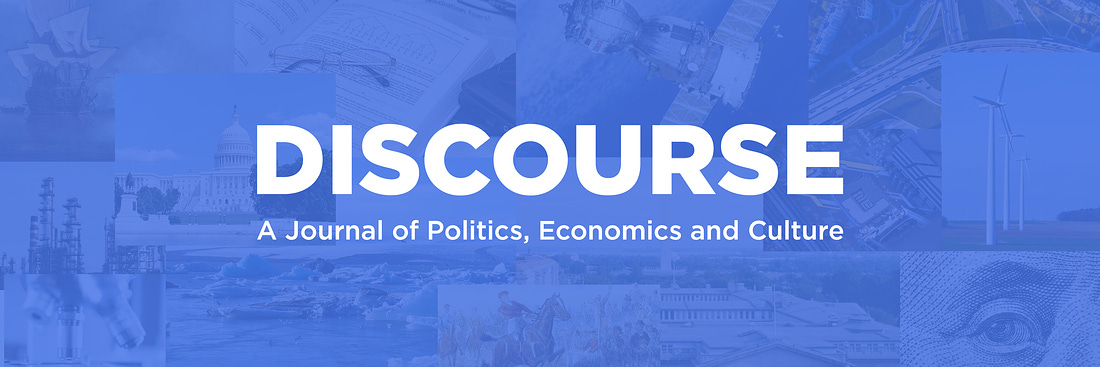|
 |
Nostalgia Can Be an Engine of Progress
The journey to the past that nostalgia takes us on is really about the present and the future
A few years ago, I attended a presentation by a professor who studies scientific, medical and technological innovation. The presentation was specifically focused on different obstacles to innovation, mostly political and other policy barriers that make it difficult for scientists, engineers and entrepreneurs to create and bring to the market new products and services that have the potential to improve lives and help solve major societal and global challenges. He also discussed cultural and psychological barriers to progress—specifically, nostalgia. According to this expert, nostalgia is distinctly at odds with a progress mindset.
The presenter saw nostalgia as antithetical to progress because he imagined that it causes people to privilege the familiarity of the past over the possibilities of the future. His position is not unique. I regularly encounter advocates for progress who suggest that nostalgia is a formidable barrier to our efforts to improve the world. In their minds, you’re either focused on the past or planning for the future, and people who are focused on the past are standing in the way of progress.
These critics have a point. It’s true that resistance to new ideas and nostalgia frequently go hand in hand. And it is often the case that people who are highly resistant to new ways of doing things are also nostalgic. These people have personalities that make change particularly challenging and anxiety-provoking for them, and therefore they have a strong attachment to order and stability, which in turn can trigger nostalgia.
But that doesn’t mean that nostalgia is the cause of their resistance to change. Their resistance comes from their personalities and resulting anxiety about change. By providing them comfort in what feels like a chaotic world, nostalgia may actually help them deal with change. Indeed, numerous studies indicate that nostalgia reduces psychological distress and boosts well-being. Moreover, nostalgia does more than provide psychological comfort in a changing world—it actually helps us become agents of change. Nostalgia isn’t a barrier to progress; it’s a resource for advancing progress.
Nostalgia Drives Progress
When people discuss progress, they usually focus on the scientific, technological, political and legal variables that influence it. They rarely talk about the impact of psychology, even when it’s clear that psychology plays a central role. Progress begins with ideas that are subsequently explored, tested, shared and debated. Each of these steps relies on psychological processes.
That’s because ideas don’t magically transmute themselves into tangible progress all by themselves. People must advocate for them. Influential others must be persuaded. And people must be motivated to advance progress, even when it’s difficult or unpleasant. Societal progress starts with a progress mindset. People with a progress mindset are agentic, resilient, inspired, optimistic and creative. Studies find that nostalgia encourages all these positive psychological states.
Since progress requires experimentation, it inherently involves failure. Imagine if every time a new idea failed, our collective response was to give up. If this were how our minds worked, we’d all still be hunter-gatherers, and not very skilled ones at that, because we’d be resistant to any new attempts to make our hunting and gathering more efficient and successful. Perhaps to some people, this doesn’t seem all that bad. As someone who enjoys spending time in nature, I certainly see the benefits of reconnecting with simple, straightforward and older ways of living. That being said, I also appreciate the scientific, technological and medical advances that make my life easier, safer and more comfortable. I think most of us are like this. We’re sometimes apprehensive about new changes, but in general we appreciate progress and want it to continue.
We don’t want failed attempts at innovation or the damage that’s sometimes caused by new ways of doing things to prevent us from pursuing progress as a whole. This means we need to be both agentic and resilient. We need to believe that despite barriers to progress and our failures at trying to solve problems, it’s within our power to eventually succeed and that this feeling of agency is what will drive us forward. But that agency needs to be coupled with resilience. Failure is difficult. It also happens a lot when we’re testing new ideas and exploring fresh possibilities and we don’t want these setbacks to keep us from trying again.
Nostalgia Inspires Confidence
Nostalgia supports agency and resilience. For example, my colleagues Dr. Andrew Abeyta and Dr. Jacob Juhl and I found that having individuals spend a few minutes reflecting on a nostalgic memory increased their confidence that they could solve a personal problem and made them feel more motivated to solve it. Other researchers have found that nostalgic reflection increases feelings of self-control and the motivation to pursue life goals.
More broadly, studies identify nostalgia as a psychological resource that counters feelings that can often be barriers to moving forward, such as loneliness, boredom and meaninglessness. For example, when people feel lonely, they become less socially confident and more risk-averse. They worry about the potential of experiencing additional social pain, which leads them to withdraw from others and avoid taking the social risks needed to create opportunities to establish new social connections. This, in turn, sustains or worsens their loneliness. A major reason loneliness is such a difficult problem to address is because it is self-reinforcing. However, my colleagues and I have found that having lonely people spend time engaging in nostalgic reflection helps them appreciate that life is bigger than their current situation and reminds them that they have experienced socially fulfilling experiences in the past. This has the effect of making them feel more socially confident in the present and more inspired to improve their social lives going forward by seeking to repair damaged relationships or cultivate new ones.
Since nostalgia inspires an agentic and goal-oriented mindset, it can be a vital resource for finding the drive to move forward when things get difficult. When we face setbacks or failures and need to restore our confidence, nostalgia helps by offering a broader perspective as well as reminders of past triumphs. Just like nostalgia can help people who suffer from loneliness use past experiences to restore social confidence and motivation, it can help people working on major challenges draw from past successes for inspiration.
From the Past to the Future
To build a better future, people need to envision a better one, and they need to feel motivated to make that optimistic vision a reality. When society faces major challenges, it’s easy for people to feel hopeless and to see progress as impossible. When people are pessimistic, it’s hard for them to find a reason to try to improve things. Instead of looking for ways to go out in the world and make a positive difference, pessimistic people turn inward and can become more self-centered. After all, personal sacrifices don’t make sense if the whole thing is pointless. Again, counterintuitively, nostalgia encourages people to become more optimistic.
When I first started conducting research on the psychology of nostalgia over 20 years ago, I didn’t imagine that nostalgia for the past would increase optimism for the future. My colleagues and I started to appreciate this future-oriented aspect of nostalgia only after carefully examining nostalgic memories that participants in our research studies shared with us. Specifically, in many of our studies, we asked individuals to describe in writing a life experience that makes them feel nostalgic and to detail how reflecting on that experience makes them feel now. We were surprised that many respondents used forward-looking words like inspired, encouraged, hopeful and optimistic when explaining how nostalgic reflection makes them feel. We, and other scholars, subsequently designed more controlled experiments and found that, indeed, having individuals spend a few minutes reflecting on a nostalgic memory, relative to a control condition in which individuals reflect on an ordinary autobiographical memory, boosts optimism for the future. In other studies, we similarly found that nostalgia increases feelings of inspiration.
Nostalgia also helps prompt creativity, which is important for progress since it heavily relies on outside-the-box thinking. One of the reasons progress is often so difficult is because it requires finding new ways of approaching a problem. That’s why creativity is so important for innovation. Here too, nostalgia can help. Studies find that people become more open-minded and think more creatively after engaging in nostalgic reflection. Looking to the past for inspiration helps open new possibilities for the future. I have talked to many artists and entrepreneurs striving to innovate. Every one of them has a nostalgic memory or multiple nostalgic memories that has influenced their creative passion.
I think meaning in life is at the core of a psychology of progress. When people believe their lives are meaningful, they are best positioned to adopt a progress mindset, to feel inspired to act with agency and resilience, to go out in the world with an optimistic attitude and to use creative problem-solving to address the challenges of our time and build a better future.
Again, nostalgia plays a key role in all of this. Numerous studies find that nostalgic reflection increases perceptions of one’s life as meaningful and restores a sense of meaning when people are experiencing distressing mental states such as disillusionment, loneliness, anxiety and boredom. In our nostalgic memories, we’re reminded that life is full of experiences that make it worthwhile and that make the world worth improving and humanity worth fighting for. This encourages a more agentic and optimistic mindset. And when we feel more agentic and optimistic, we’re more likely to persist, even when a goal feels near impossible.
The benefits of nostalgia that I have discussed so far are tied to people’s personal nostalgic memories. However, people also experience a broader, more historical type of nostalgia. That is, we can feel nostalgic for a time period before we were born because we find some aspect of that period to be relevant to our interests and goals.
Historical nostalgia may be especially useful for promoting a progress mindset. Individuals and groups working to advance specific causes aimed at helping improve the world (or even just their little corner of it) can nostalgically look to previous stories of progress. When you find yourself thinking that the world is getting worse, that progress is a myth or that the future is hopeless, it might be useful to look to the past for contrary evidence. People in previous generations made discoveries and sacrifices, created new technologies and medicines and fought for social and legal changes that people greatly benefit from today. Many of them faced what were widely believed to be impossible or hopeless conditions. We can look to their stories as the types of cultural memories that should be preserved and passed down to future generations. Many progress advocates may not realize that they themselves engage in historical nostalgia when they express enthusiasm for previous periods of American history characterized by rapid economic and technological development and a culture of optimism. Like everyone else who feels nostalgic about a previous era, these progress advocates don’t want to return to the past. Instead, they want to draw inspiration from the past to build a better future.
I believe that humans are progress-oriented by nature. We can certainly be set in our ways and we need a certain amount of stability to thrive. We don’t thrive in chaos. But we also oppose stagnation. We are curious, explorative and creative. We like to build and tinker. We are never totally satisfied. Even when we are feeling content, we can imagine making our lives even better. As much as we’re defense-oriented, we’re also growth-oriented. We strive for self-improvement.
It seems intuitive to view nostalgia as in opposition to our progress-oriented nature because it involves mental time travel to the past. But it turns out the journey to the past that nostalgia takes us on is really about the present and the future. When we look for guidance and inspiration to build a better tomorrow, we need our cherished memories. Nostalgia isn’t a weakness. It’s an undeniable strength.
This article is adapted from the new book, Past Forward: How Nostalgia Can Help You Live a More Meaningful Life by Clay Routledge. December 2023; Sounds True. Reprinted with permission.
You’re currently a free subscriber to Discourse .

